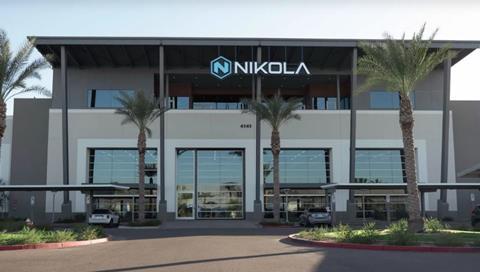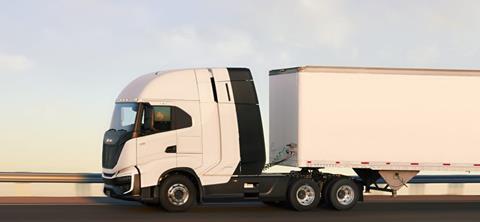Nikola Corporation Reports First Quarter 2024 Results
Nikola Corporation (Nasdaq: NKLA), a global leader in zero-emissions transportation and energy supply and infrastructure solutions via the HYLA brand, today reported financial results and business updates for the quarter ended March 31, 2024.

Hydrogen Fuel Cell Electric Trucks (FCEVs):
- Nikola wholesaled 40 FCEVs in Q1 2024, surpassing the high-end of the guidance range. This brings the total to 75 FCEVs wholesaled in the first two quarters of serial production.
- The FCEVs, designated for end fleets, have seen repeat orders and new market penetration, including New York, expanding beyond the initial focus on California and Canada.
- To date, Nikola FCEVs have accumulated over 830,000 miles with an average fuel economy exceeding 7.2 mi/kg.
Energy and Infrastructure:
- The HYLA team continues to progress on the Hydrogen Highway Plan, aiming to provide nine hydrogen fueling solutions by mid-year 2024 and 14 by year-end 2024. These include modular fuelers and partner stations in California, Canada, and at Nikola’s Coolidge, Arizona manufacturing facility.
- New HYLA hydrogen refueling stations were opened in Ontario, near the Port of Long Beach, California, and Alberta, Canada, to support fleets along the Edmonton to Calgary freight corridor.
Constructive Green Policies:
- Nikola holds a dominant market share of HVIP vouchers for Class 8 FCEVs, with 362 out of 367 unredeemed vouchers requested through March 2024.
- For Class 8 BEVs, Nikola ended Q1 with 85 unredeemed vouchers, representing a 30% market share.
- Nikola executed its first sale agreement for NOx and particulate matter credits generated under CARB’s Heavy-Duty Omnibus Regulation, with revenue from this transaction to be recognized in Q2 2024.
Battery-Electric Trucks (BEVs):
- The first delivery of a remediated BEV was completed in Q1 2024. Nikola aims to complete remediation of all BEVs by year-end 2024.
- Future sales of on-hand BEV inventory will depend on battery supply, with revenue anticipated in 2025.
- The BEV 2.0 has been engineered to share significant software commonality with FCEVs, allowing for seamless over-the-air upgrades and enhanced features such as predictive diagnostics and Advanced Driver Assistance Systems (ADAS).










